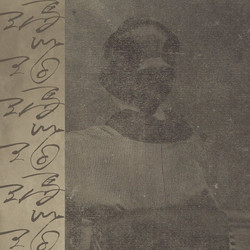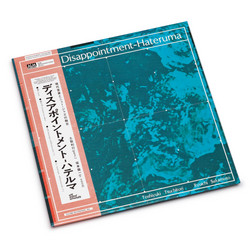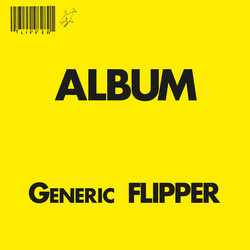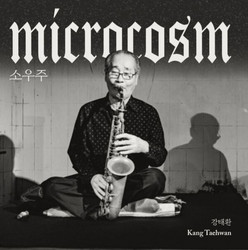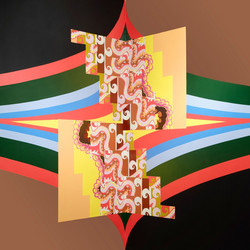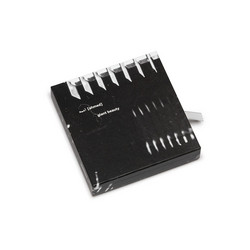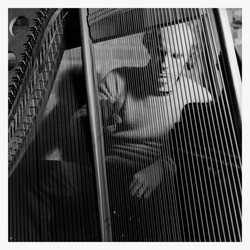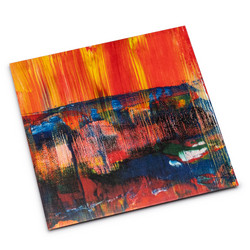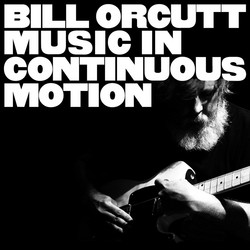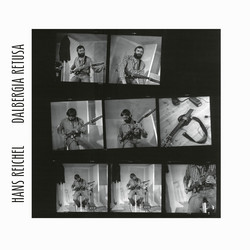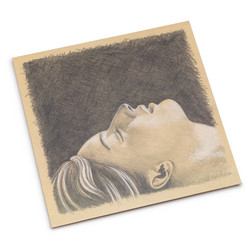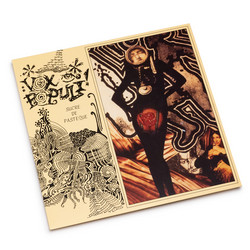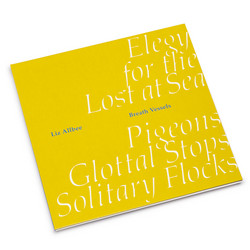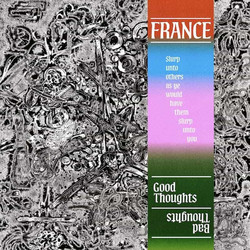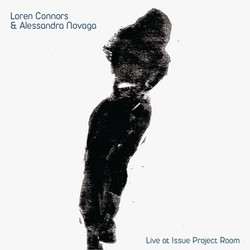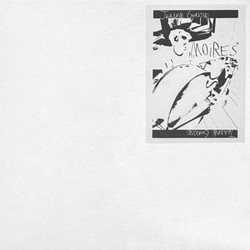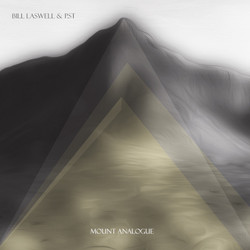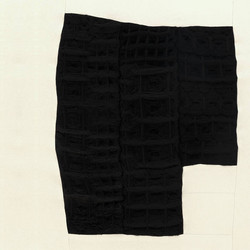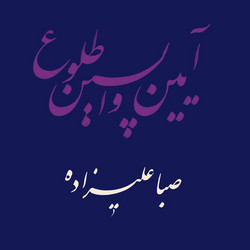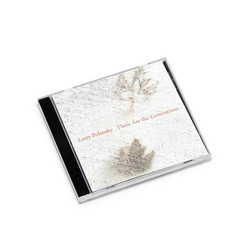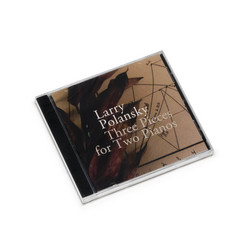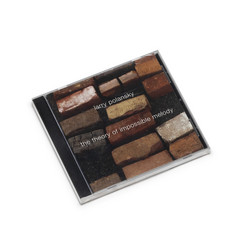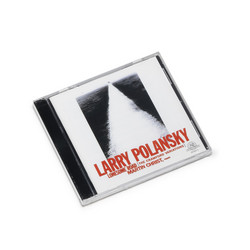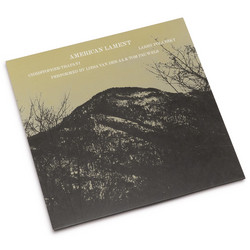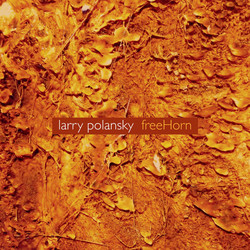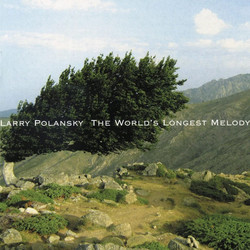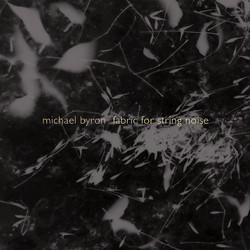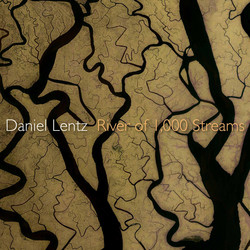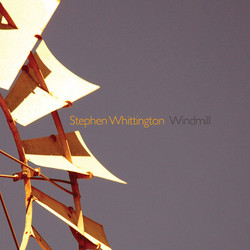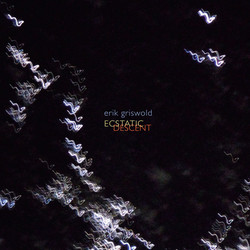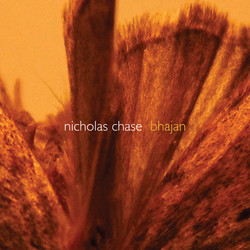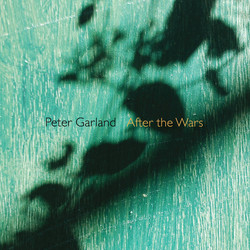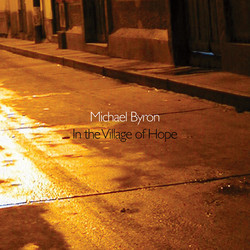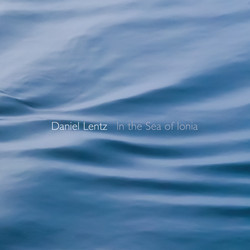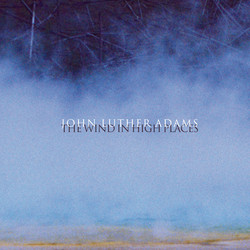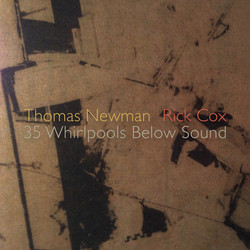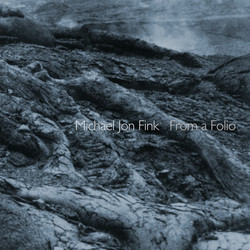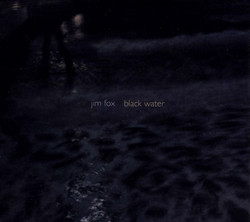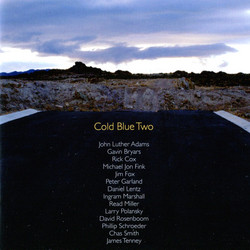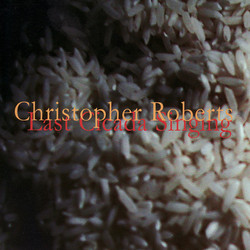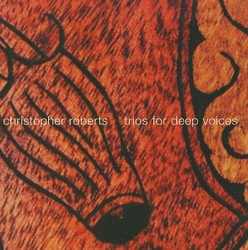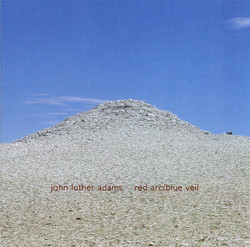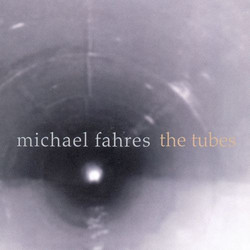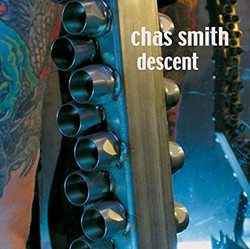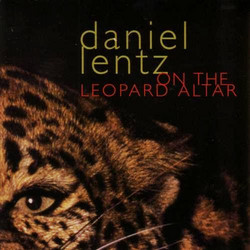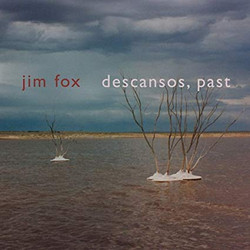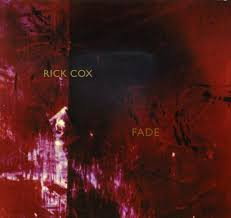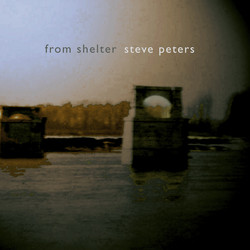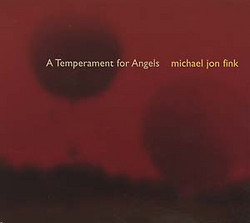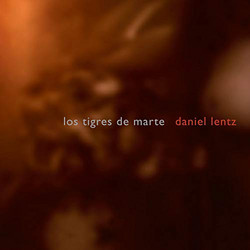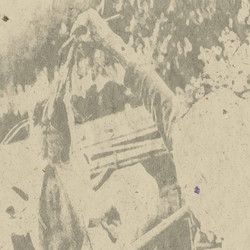Over the past 25 years, Larry Polansky has been composing a series of fascinating mensuration canons (a formal concept dating back to the Renaissance) that run a sonic gamut from wildly boisterous (#6) to serenely introverted (#17, Guitar Canon). This disc brings together thirteen of these pieces (one of which is found here in three different realizations).
In these canons, each successively entering voice moves proportionally faster than the previous one (i.e., each successive voice is to some degree a temporal compression of the voice that precedes it, allowing all voices in any given canon to contain roughly the same amount of information yet all end simultaneously), causing each piece’s density and rhythmic complexity to increase from beginning to end.
Usually, but not always, the individual voices in Polansky’s canons are permutation lists of a small number of musical elements (e.g., four or five or six elements), which may include any and/or all of a voice’s parameters (pitch, rhythm, instrumentation, etc.).
Each of the canons on this disc could be considered a different orchestration of two basic concepts—the mensuration canon and the permutational cycling of a small number of musical elements. The instrumentation varies widely: gamelan, electric guitars, children’s voices, computer-generated sounds, marimbas, non-pitched percussion, choir, and chamber ensemble. The pitch materials, rhythms, tempos, tunings, and textures also vary dramatically from piece to piece.
Three tracks on this CD involve the collaboration of noted composer-performers who have “realized” (created from a set of specific instructions) their own distinct versions of Polansky’s canon #13 (the DIY Canon), filling the piece’s malleable template with their own pitch and rhythm materials and instrumentation.
Larry Polansky is the composer of a unique body of work that sets highly intellectual, computer-based systems into action in the creation of wonderfully inventive music that sometimes incorporates “low-brow” source materials and vernacular musical styles into its “high-brow” mechanisms. He is also an active performer, theorist, software designer, writer, and teacher.
Polansky’s music has been performed around the world, including performances at such venues as Internationale Gesellshcaft fur Neue Music Zürich, the Darmstadt Summer Festival, Mobius, the Here Gallery Performance Series, the Experimental Intermedia Foundation, Roulette, and the Music Gallery, and released on the New World, Artifact, Frog Peak, Cold Blue, Centaur, Opus One, and Cuneiform labels. He has received many awards and commissions from various organizations, including the Parsons Fund (Library of Congress), the Astra Chamber Society, Meet-the-Composer, the Japan/United States Interlink Festival, the American Music Center, and the Mellon Foundation.
Polansky’s writings on computer music, music theory, and visionary and iconoclastic American composers, including Ruth Crawford Seeger (on whose work he is a noted expert), have appeared in numerous publications. As a software designer, he is one of the three co-authors (with Phil Burk and David Rosenboom) of the widely used computer music language HMSL. Polansky is the co-founder and co-director of the composer’s collective Frog Peak Music, the founding guest editor of the Leonardo Music Journal, and a member of the board of directors of the periodical Perspectives of New Music. For five years he was on the board of the International Computer Music Association. He has taught at Dartmouth College, teaching in the graduate program in electro-acoustic music, chairing the music department, and co-directing the Bregman Electro-Acoustic Music Studio. For ten years, he worked at the Mills College Center for Contemporary Music. Currently, he teaches at the University of Claifornia, Santa Cruz.
“Larry Polansky reveals yet another unashamedly tactile approach to musical material, forging an oblique angle to tradition…. Polansky’s cool and elegant set of 16 four-part canons…it’s a mark of his resourceful mind that he can adapt the basic rules into a series of such complex and varied works…. Polansky’s canons show the extreme liberties that can be born from such exacting discipline, given imagination and willing.” —The Wire magazine
“Larry Polansky is the modern dean of the mensuration canon…. These canons are clever, mysterious, and comical – part theory of relativity, part Rube Goldberg.” —ClassicalNet
